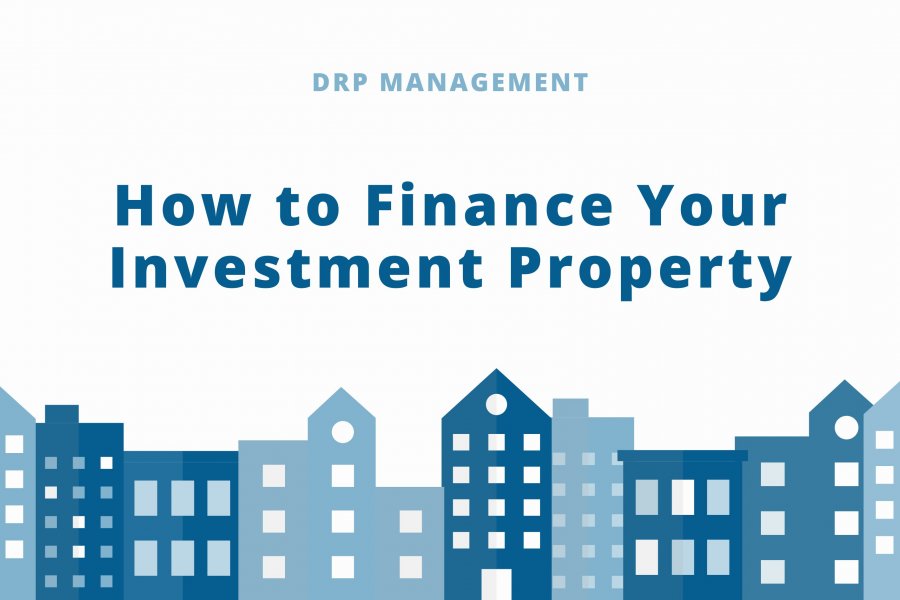
One of the biggest challenges when it comes to investing in real estate is financing the investment property. While various options are available, finding the best one for your specific situation can be overwhelming.
The option you choose for financing your property will affect how you price your rental. You want to ensure you can still offer a reasonable rent price to tenants to avoid the risk of vacancy.
In this guide, we will discuss some key factors to consider when looking for financing options for your investment property.
Factors to Consider When Financing Investment Properties
When you're looking to finance an investment property you must consider these 5 factors:
1. Your Credit Score and History
Your credit score and history are crucial factors that lenders consider when determining whether or not to approve your loan application. A good credit score shows you have a history of responsible borrowing and timely payments. This makes you a lower-risk borrower in the eyes of lenders and increases your chances of getting approved for a loan with favorable terms.
2. Type of Investment Property
The type of investment property you are looking to finance also influences the approval process and the terms offered by lenders. For example, financing options for a single-family home may differ from those for a multi-unit apartment building or commercial property.
Researching and comparing different loan programs is essential to find one that best suits your investment property type.
3. Down Payment
Most lenders require a down payment when financing an investment property, typically ranging from 20-25% of the property's purchase price. A larger down payment can lower your interest rate and monthly mortgage payments, this increases your chance of getting loan approval.

4. Interest Rates
Interest rates can significantly impact the cost of financing an investment property. Generally, interest rates for investment properties are higher than those for primary residences. It's essential to shop around and compare interest rates from different lenders to find the most competitive option.
5. Loan Terms
Loan terms refer to the length of time you have to repay your loan and can range from 10 to 30 years. The longer the loan term, the lower your monthly payments will be, but the more interest you'll end up paying in the long run. When choosing a loan term, carefully considering your financial goals and capabilities is essential.
Financing Options
Financing an investment property involves securing funds to purchase real estate that generates rental income. Unlike a primary residence, lenders see an investment property as a riskier venture, leading to more stringent loan approval criteria. However, this shouldn't deter you—many financing options are available, each with benefits and drawbacks.
Conventional Loans
Conventional loans are the most common type of mortgage for investment properties. The federal government does not guarantee these loans but typically offers competitive interest rates.
Pros:
- It has lower interest rates than other financing options.
- Its fixed-rate options provide stability in monthly payments.
Cons:
- It requires a higher credit score and a larger down payment (usually 20-25%).
- It has more stringent approval criteria compared to primary residence loans.

Hard Money Loans
Hard money loans are short-term loans provided by private lenders rather than traditional financial institutions. They are asset-based financing, meaning the property itself serves as collateral.
Pros:
- Faster approval and funding, often within days.
- There is less emphasis on credit score and income.
Cons:
- It has higher interest rates and fees.
- It offers shorter loan terms, typically one to three years.
FHA Loans
Federal Housing Administration (FHA) loans are government-insured loans that can be used for investment properties under certain conditions. Typically, FHA loans are for owner-occupied properties, but multi-unit properties where the owner lives in one of the units can qualify.
Pros:
- In this case, the down payment requirements are lower (as low as 3.5%).
- It has easier credit qualification.
Cons:
- Must occupy one of the units in a multi-unit property.
- Mortgage insurance premiums (MIP) are required.
Portfolio Loans
Portfolio loans are mortgages held by lenders in their portfolio rather than being sold on the secondary market. This gives lenders more flexibility in their terms and approval criteria.
Pros:
- Flexible terms tailored to the borrower's needs.
- Can finance multiple properties under one loan.
Cons:
- Potentially higher interest rates.
- They are less widely available than conventional loans.
Home Equity Loans and HELOCs
If you have significant equity in your primary residence, consider a home equity loan or a home equity line of credit (HELOC) to fund your investment property.
Pros:
- Lower interest rates.
- Interest may be tax-deductible.
Cons:
- Your primary residence is used as collateral, increasing risk.
- Variable interest rates for HELOCs can lead to higher payments over time.

Preparing for the Loan Application Process
Getting approved for an investment property loan requires thorough preparation. Here are 5 steps to set yourself up for success:
1. Improve Your Credit Score
Lenders look at your credit score to determine your reliability as a borrower. Aim for a score of at least 620, but the higher, the better.
2. Save for a Down Payment
Investment property loans typically require a down payment of 20-25%. The more you can put down, the better your chances of approval and the lower your interest rate.
3. Organize Your Financial Documents
Be prepared to present documents such as tax returns, bank statements, and proof of income. Lenders want to see that you have a stable financial background.
4. Calculate Your Debt-To-Income Ratio
Your debt-to-income ratio (DTI ratio) is crucial in loan approval. Lenders generally prefer a DTI ratio of 36% or lower.
5. Research the Property Market
Demonstrate to lenders that you've done your homework by thoroughly analyzing the property market, including rental income potential and expected expenses.
Bottom Line
Financing an investment property requires careful planning, thorough research, and strategic decision-making. By understanding your financing options, preparing diligently, and managing your finances effectively, you can maximize the success of your real estate investment
If you're looking to optimize your investment strategy, consider partnering with our experts in DRP Management. We offer tailored solutions to help you navigate the complexities of property investment and achieve your financial goals. Contact us today to learn more about how we can support you on your investment journey!
